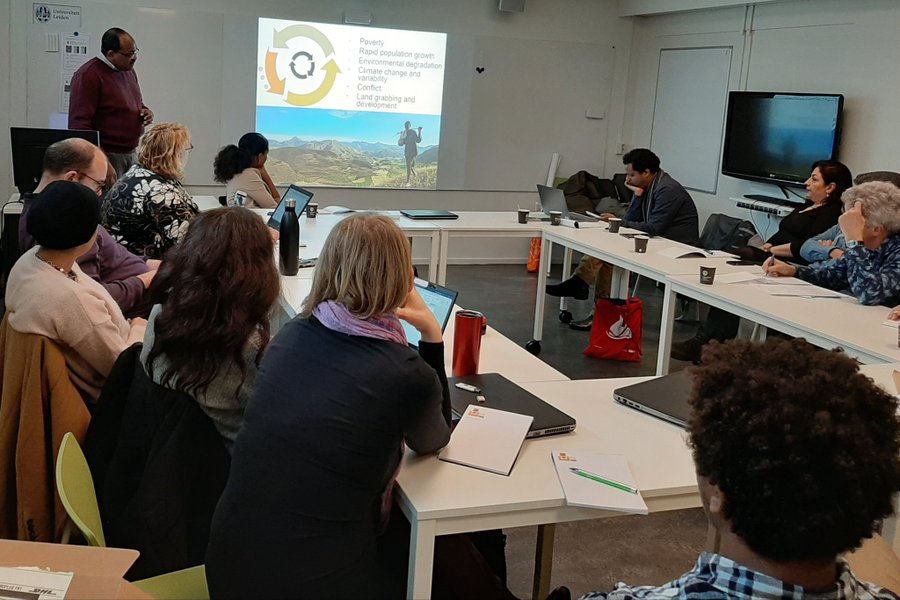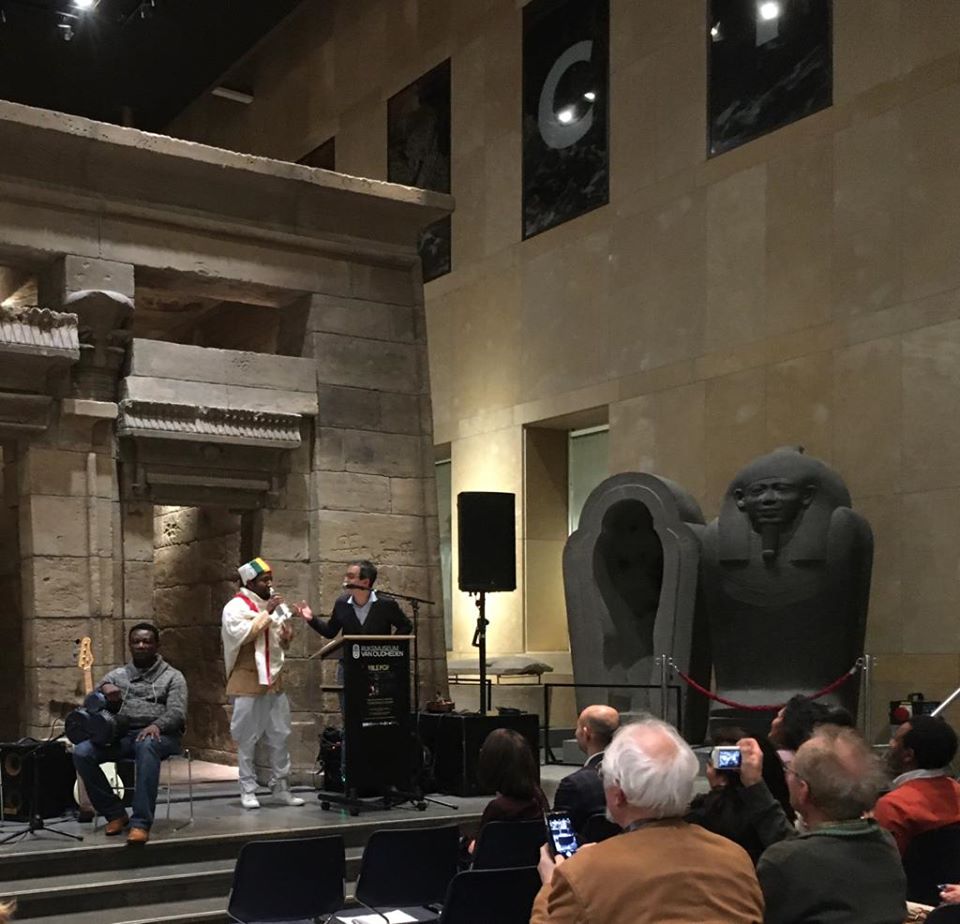The Nile Workshop report: Inclusion and exclusion over a trans-boundary resource (water and land acquisition)
 The governance of the Nile at regional scale has been contested with national imperatives. Inside national territories, different challenges, such as the frequency of droughts, floods, deforestation, land degradation and water pollution, impede the livelihood of populations. On a transnational level, the divergence of development priorities and investment strategies contribute to the contestation over the sharing of the Nile waters in a context of mild reciprocal political trust. Driving from this complexity, an ‘Africa 2020’ workshop was organised on 20-21 February to investigate the conditions of water and land acquisition in the riparian countries of the Nile, and how these factors can affect the future governance of the Nile basin.
The governance of the Nile at regional scale has been contested with national imperatives. Inside national territories, different challenges, such as the frequency of droughts, floods, deforestation, land degradation and water pollution, impede the livelihood of populations. On a transnational level, the divergence of development priorities and investment strategies contribute to the contestation over the sharing of the Nile waters in a context of mild reciprocal political trust. Driving from this complexity, an ‘Africa 2020’ workshop was organised on 20-21 February to investigate the conditions of water and land acquisition in the riparian countries of the Nile, and how these factors can affect the future governance of the Nile basin.
Scenario development process
Twenty participants gathered at Leiden University to discuss these issues. The spectrum of their research backgrounds ranged from hydraulic and environment science to anthropology, political science and history disciplines. Most participants were affiliated to research institutions (IHE-Delft, Wageningen University, Cologne University of Applied Sciences, Bonn University, Lund University; Social Justice Platform (Egypt)), while two participants came from the private sector (Envasses Environmental Consultants Limited (Kenya) and Deltares). The majority of the participants were based in the Netherlands, though they originally came from the Nile riparian countries.
 The workshop was based on a ‘scenario development process’ to explore future (2050) paths where the Nile waters could fulfil social consideration, development policies and environmental justice. The first day was started by two introductory notes. Amgad Omer of Deltares provided the hydrological characteristics with mapping the hydropower projects along the Nile river; additionally, he pointed out the challenges of climate change, hunger crises and floods and droughts. In the second note Jeltsje Sanne Kemerink-Seyoum illustrated the multi-forms of water and land grabbing in the Nile basin. She explained how not only foreign investment is a cause of grabbing, but rather national elites and global environmental solution (climate finance) contribute to seizing lands on a micro level. Then the workshop facilitator Bert Enserink, associate professor of policy analysis at TU Delft, explained the scenario development exercise.
The workshop was based on a ‘scenario development process’ to explore future (2050) paths where the Nile waters could fulfil social consideration, development policies and environmental justice. The first day was started by two introductory notes. Amgad Omer of Deltares provided the hydrological characteristics with mapping the hydropower projects along the Nile river; additionally, he pointed out the challenges of climate change, hunger crises and floods and droughts. In the second note Jeltsje Sanne Kemerink-Seyoum illustrated the multi-forms of water and land grabbing in the Nile basin. She explained how not only foreign investment is a cause of grabbing, but rather national elites and global environmental solution (climate finance) contribute to seizing lands on a micro level. Then the workshop facilitator Bert Enserink, associate professor of policy analysis at TU Delft, explained the scenario development exercise. 
The afternoon sessions incorporated a poster exhibition where participants presented their abstracts. They raised various dimensions of the Nile governance; for instance, demographic and environmental challenges in Lake Victoria; the impacts of environmental degradation and population growth on agriculture productivity in the Eastern Nile basin, the culture connections to the river, the importance of capacity building for decision makers and equitable water allocation.
These presentations provoked the discussion to define the factors that affect water and land grabbing in the basin. Thereafter, the participants agreed on four determinants: population growth, urbanisation and climate change, in addition to the location (upstream or downstream).
Driving from these facts, the two axes of scenario were identified as: (X) agriculture production scale; and (Y) the geographic differences (see figure). Afterwards, the participants were divided into four groups to plan their storylines according to the conditions they had.

On the second day, the participants discussed the possible strategies according to the storylines they developed. The suggested intervention actions and policies were planned across a timeline extending from 2020 to 2050. The recommendations included for instance: evaluating existing strategies of investments and extensions; establishing a mechanism for exchanging farmers’ knowledge with research centres in the basin; establishing a regional monitoring network and a university specialised in the Nile affairs from interdisciplinary perspective, creating basin-wide legislations on environment; launching a sustainable farming catalogue and forming a basin cooperative for small farmers. The storylines developed during the workshop will become available later this year.
 At the end of the second day, participants attended ‘Nile Pop’ at the Rijksmuseum van Oudheden, organised by the project of “Open Water Diplomacy. Media science and transboundary cooperation in the Nile basin” led by Emanuele Fantini. Here, presentations and performances showed how the Nile river and its infrastructure have inspired popular culture in Egypt, Sudan and Ethiopia. A truly ‘grand finale’ after a fruitful workshop!
At the end of the second day, participants attended ‘Nile Pop’ at the Rijksmuseum van Oudheden, organised by the project of “Open Water Diplomacy. Media science and transboundary cooperation in the Nile basin” led by Emanuele Fantini. Here, presentations and performances showed how the Nile river and its infrastructure have inspired popular culture in Egypt, Sudan and Ethiopia. A truly ‘grand finale’ after a fruitful workshop!
Abeer Abazeed
In preparation for the workshop, the ASCL Library’s Germa Seuren and workshop organiser Abeer Abazeed compiled a web dossier on The Nile.
Organising committee:
Abeer Abazeed, Faculty of Governance and Global Affairs, Leiden University
Abby Onencan, TU Delft
Bert Enserink, TU Delft (facilitator)
Lama El Hatow, Erasmus University Rotterdam

